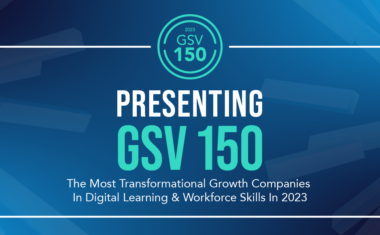Springboard Mentor Spotlight: Krunalkumar Shah

Meet Krunalkumar Shah, a mentor for Springboard’s Software Engineering Career Track.
Krunalkumar Shah is proof that programming skills open many doors. While earning a master’s degree in IT, he published a research paper in which he demonstrated vulnerabilities in the Linux operating system, which is thought to be the world’s most secure OS. Ever since he was a child, he’d had an enduring interest in cybersecurity and digital forensics, and went on to work in various full-stack developer and IT consulting roles.
Now, Shah is a full-time mentor, sharing his knowledge with students at Springboard as well as students enrolled in digital skills boot camps offered through Springboard partnerships with the University of Southern Florida and the University of Maryland. He has also mentored students on Chegg and Codementor.
Krunalkumar says that while he loves working in the industry, his true passion is teaching. In fact, being a mentor exposes him to a wider variety of technology frameworks and problem sets than working in a full-stack developer role, which typically focuses on one or two programming languages.
“If I work in the industry, my knowledge stays with me only, but when I become a mentor, I can spread knowledge across the world,” said Shah, who mentors students located across the globe.
What makes you passionate about teaching and mentoring?
Life is only good for two things: learning and teaching. I learn by teaching, and that gets me excited about mentoring and teaching.
What are some things you’ve learned from your mentees?
When I’m explaining something to my mentees, they often ask follow-up questions I hadn’t thought of before. This compels me to sharpen my knowledge or recall things I learned in the past. IT technology changes day by day. Sometimes my mentees will send me links to something they read and ask me to explain it to them. After taking a look at it, I can explain it to them and, in that way, I get to update my knowledge as well.
Do you learn more as a mentor than when you were working as a full-time software engineer?
I believe learning should be done in a fun way. If you don’t enjoy what you are learning, it’s not worth learning. When I worked full-time in France as a developer and cybersecurity expert, I was only focused on specific technologies. I just did the work that was assigned to me. Now I get to interact with people who are at different stages of the journey to becoming a software engineer. They ask me lots of questions. I get inspired by what they are capable of doing even though they come from a non-IT background.
Do you think you’ll ever work full-time in the industry again?
Definitely. It’s important to do what you love and do what makes you happy. If anyone wants to connect with me, I would love to talk.

You published an award-winning research paper about Linux security. Can you tell me about that?
I did this research as part of my master’s degree. The Linux operating system is considered one of the most secure in the world, but I was able to prove otherwise. I decided to mine the research that had been previously done on the Linux OS and add my own findings. My research was nominated for the Best Paper Award at the International Association of Engineers (IAENG) World Congress on Engineering conference in Hong Kong.
You mentioned in your LinkedIn profile that you’re an expert at transforming intangible ideas into tangible actions. That’s a really important skill for an engineer to have. How do you cultivate this skill?
Let’s say you have a problem. It appears there is only one solution, but it’s difficult to implement. You can divide the problem into 10 parts, solve each individual part, and then integrate it. You will get a final solution. Divide and conquer is one of the most common strategies programmers use in the real world, even if they are not aware they are using it.
Tell me about your mentees at Springboard. Who are they? What are their backgrounds?
Most of my mentees are older than me; some of them are the same age as my parents. I’ve mentored a lawyer, retiring army officer, post officer, and an eye doctor. A lot of people are curious about the IT industry because of the work-from-home culture.
People coming from a non-IT background often struggle with the basics. As a mentor, my job is to convert technical jargon into non-technical terms so people can understand it.
What do you hope to achieve in the future?
I just want to give back to society. If you’re knowledgeable, you can use your knowledge towards a positive or a negative end. The life that you live for others is the only life that you actually live.
What’s your advice for students who experience imposter syndrome?
Take a 20-minute break. Don’t just keep trying to write code. Go outside, take a walk, have a drink of water, and come back to it. When you work in front of a computer screen, you have to exercise and let your eyes rest. Ultimately, your health is your wealth. Sound body, sound mind.
Anything else you would like to add?
My last piece of advice to Springboard students is: don’t try to memorize everything. Just try to understand the key concepts and move on. The IT world is constantly shifting. Whatever you learn today might not be there tomorrow. Why stuff your brain with facts when you have Google? Free up your brain space for more important things.
Want to become a mentor? Apply here!
We were founded in 2013 with the goal of helping people anywhere in the world advance their careers through affordable, mentor-led online courses. Since then, we’ve helped thousands of students across the globe grow their skills and build new and rewarding careers via a flexible, human-centric, online approach. Every learner is unique—and so are their learning needs. We believe education should prepare learners for the real world, and that working on meaningful projects under the guidance of industry experts is one of the best ways to get there. Our education model, centered around these principles, has launched students from more than 100 countries into professional success. We deliver curated, expert-developed curricula via a mentor-led approach that emphasizes hands-on learning and human interaction.


